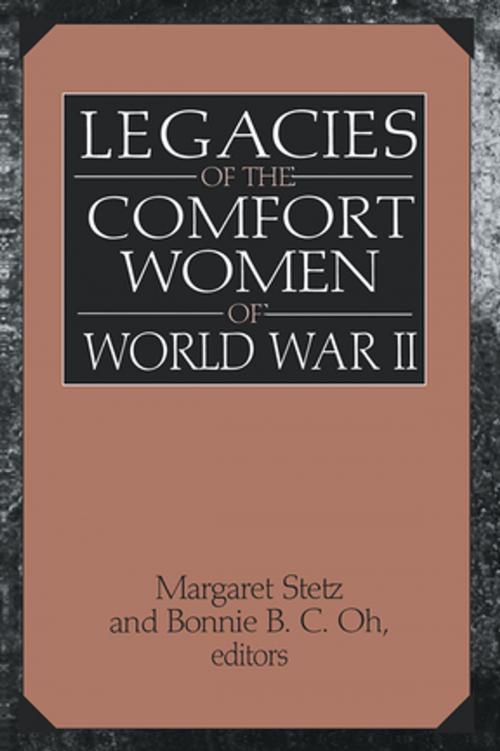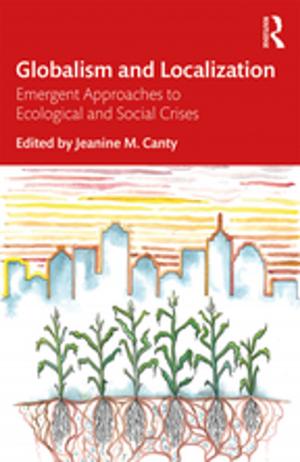Legacies of the Comfort Women of World War II
Nonfiction, Social & Cultural Studies, Political Science, History| Author: | Margaret D. Stetz, Bonnie B. C. Oh | ISBN: | 9781317466246 |
| Publisher: | Taylor and Francis | Publication: | February 12, 2015 |
| Imprint: | Routledge | Language: | English |
| Author: | Margaret D. Stetz, Bonnie B. C. Oh |
| ISBN: | 9781317466246 |
| Publisher: | Taylor and Francis |
| Publication: | February 12, 2015 |
| Imprint: | Routledge |
| Language: | English |
The stories of the former comfort women have galvanized both Asian and non-Asian intellectuals working in a variety of fields. Scholars of Asian history and politics, feminists, human rights activists, documentary filmmakers, visual artists, and novelists have begun to address the subject of the comfort system; to take up the cause of the surviving comfort women's sturggles; to call attention to sexual violence against women, especially during wartime; to consider the links among militarism, racism, imperialism, and sexism; and to include this history into 20th-century political history. This volume contains a cross-section of responses to the issues raised by the former comfort women and their new visibility on the international stage. Its focus is on how theorists, historians, researchers, activists, and artists have been preserving, interpreting, and disseminating the legacies of the comfort women and also drawing lessons from these. The essays consider the impact and influence of the comfort women's stories on a wide variety of fields and describe how those stories are now being heard or read and used in Asian and in the West.
The stories of the former comfort women have galvanized both Asian and non-Asian intellectuals working in a variety of fields. Scholars of Asian history and politics, feminists, human rights activists, documentary filmmakers, visual artists, and novelists have begun to address the subject of the comfort system; to take up the cause of the surviving comfort women's sturggles; to call attention to sexual violence against women, especially during wartime; to consider the links among militarism, racism, imperialism, and sexism; and to include this history into 20th-century political history. This volume contains a cross-section of responses to the issues raised by the former comfort women and their new visibility on the international stage. Its focus is on how theorists, historians, researchers, activists, and artists have been preserving, interpreting, and disseminating the legacies of the comfort women and also drawing lessons from these. The essays consider the impact and influence of the comfort women's stories on a wide variety of fields and describe how those stories are now being heard or read and used in Asian and in the West.















